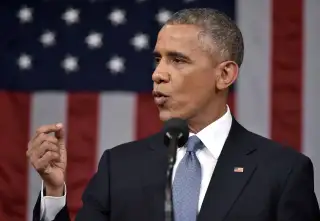Why Obama Wants to Tax College Savings

In his State of the Union address Tuesday, President Obama promised to make college more affordable for low- and middle-income families. But one way he would pay for that would be to make college more expensive for millions of upper-income Americans.
The president proposed ending a key tax break on state 529 college savings plans. Today, the money you invest in a 529 plan isn't deductible on your federal taxes (34 states and the District of Columbia give you a break on state taxes), but your savings grow tax-deferred, and you won't owe any taxes on your earnings when you withdraw that money to pay for higher education expenses, including tuition, room and board, and books. Under Obama's plan, those investment profits would be taxable, even if the money went toward college.
President Obama says he'd use the estimated $2 billion in additional tax revenues to raise the American Opportunity tax credit, which is a $2,500 write-off targeted at low- and middle-income families paying tuition bills. The administration points out that 529 plans disproportionately benefit higher-income households.
In essence, Obama is proposing making college more expensive for an estimated 2 million mostly upper-income families to ease the tuition burden for more than 8.5 million low- and middle-income families.
A Question of Fairness
This proposal—which is already facing Republican opposition in Congress—is based on concerns about the fairness of the 529 tax breaks that have been widely discussed among education-related think tanks and experts of all political leanings for years.
In all, federal taxpayers spend more on educational tax breaks than they do on popular financial aid programs such as Pell grants, noted a 2013 report by the Reimagining Aid Design and Delivery (RADD) Consortium for Higher Education Tax Reform. Not only are all the education tax breaks confusing and hard to collect, "students from families with the least financial need receive the most tax-based aid," the report noted.
In theory, 529 plans aren't just for the rich. Anybody can open one of these tax-protected colleges savings account for a child or for themselves. You can choose either a prepaid tuition plan, which lets you buy tuition credits ahead of time, or a college savings plan, which lets you set money aside for a future college student.
That tax break that the president wants to eliminate has been a key to 529 plans' popularity. Since President George W. Bush signed the 529 tax exemption into law in 2001, families have opened nearly 12 million new 529 accounts and have socked away almost $250 billion for college.
And states have been marketing the savings programs. In 2012, the GAO found that 14 states offered matching grants to encourage low-income families to save. Some states even offered 529 brochures to new parents leaving the hospital.
Despite these efforts, very few low- or middle-income families have managed to save very much in 529s. In 2012, more than 97% of families had no special college savings account, according to a Government Accountability Office report. (The large number of accounts may be due to some families opening separate accounts for each child and parent.)
One reason for the low participation: Many still don't know about 529s. Of parents who say they're planning to send their kids to college, 49% don't even know what a 529 plan is, Sallie Mae found in its annual "How America Pays For College" report.
Another factor: Low and middle-income families pay comparatively low taxes, so the tax break is not much of a lure to lock up money for one purpose. Families can take money out of 529s to spend on non-college expenses, but they'll have to pay regular income taxes, plus an extra 10% penalty, on any earnings.
As a result, 529 investors tend to be wealthy. Families with 529s earned a median annual income of $142,400 and reported a median of $413,500 in financial assets, according to the GAO. About half of families with 529s (or similar Coverdell accounts) had an income above $150,000 in 2010.
And, in part because high earners typically owe higher taxes, the wealthy reaped large tax breaks from using 529s. In 2012, the GAO found that Americans who made less than $100,000 withdrew a median $7,491 from their 529s, saving just $561 on their taxes. But Americans who earned more than $150,000 withdrew a median $18,039, saving $3,132 in taxes.
In place of the tax break at withdrawal, Obama wants to expand the American Opportunity Tax Credit, which is currently phased out for families earning more than $180,000 a year.
The administration would like to expand the write-off to more students, such as those who attend college part-time. "It's targeted in such a way that it will be most impactful to the students who need the assistance the most," says Cecilia Muñoz, White House domestic policy director.
What Changes You'll Really See
What does this all mean for you: Not much, at least for the near term.
If you've already got money in a 529, don't worry. The president's plan wouldn't be retroactive. It would repeal the tax break on earnings only for future contributions.
And if you're planning to start saving for college, there's probably not much to worry about either. Republicans, who control both houses of Congress, have come out in opposition to the proposal. “You don’t produce a healthy economy and an educated workforce by raising taxes on college savings,” Brendan Buck, a spokesman for Rep. Paul Ryan, R-Wis., told the Wall Street Journal.
That means there probably won't be extra money in the budget for much additional financial aid for low- and middle-income families. So you may as well start saving for tuition bills. Here's how to find the best 529 plan for you.
Correction: An earlier version of this story misstated the proportion of new tax revenues that would come from families earning above $250,000 if Obama's proposal was enacted. The reference has been removed.